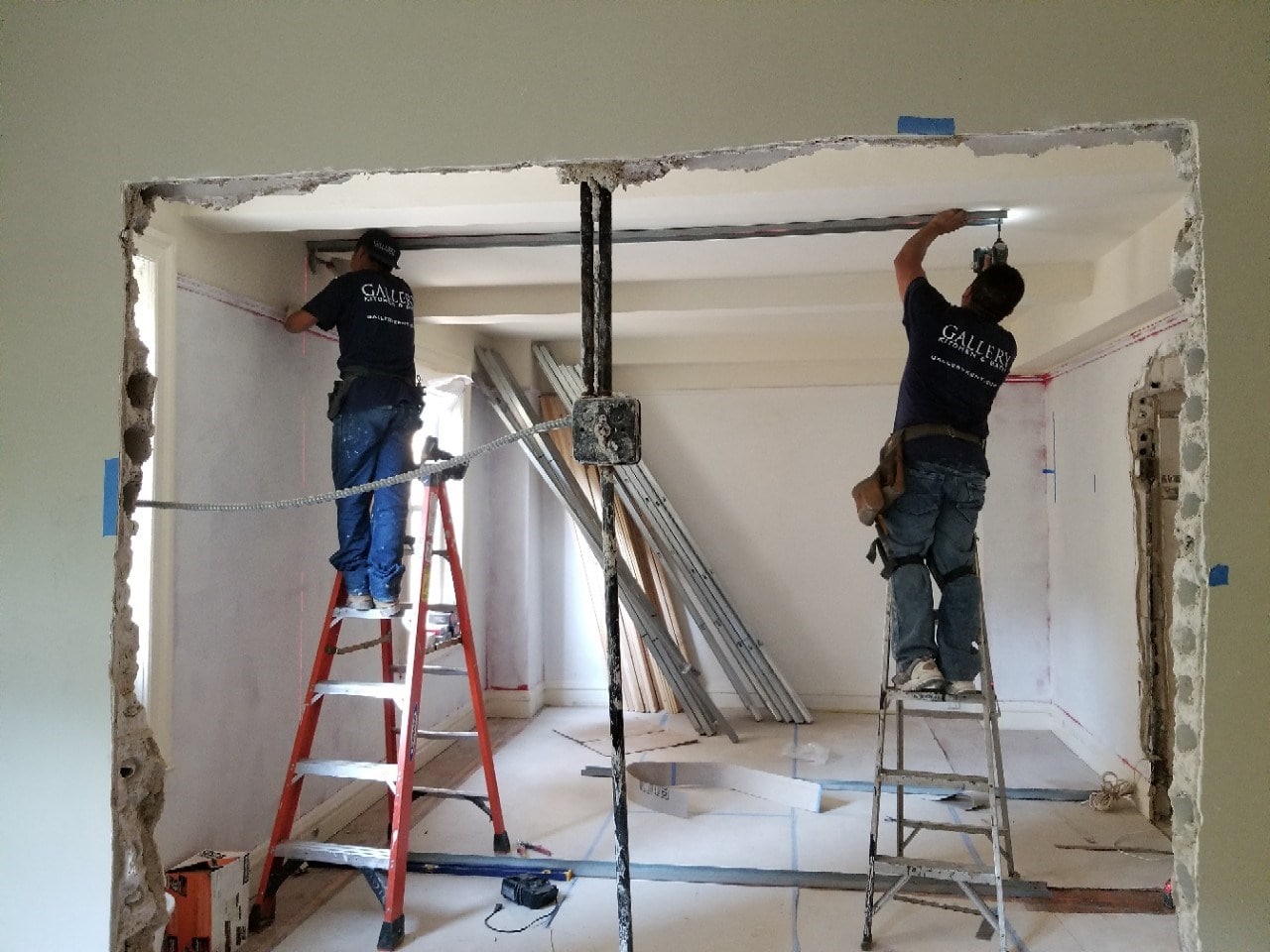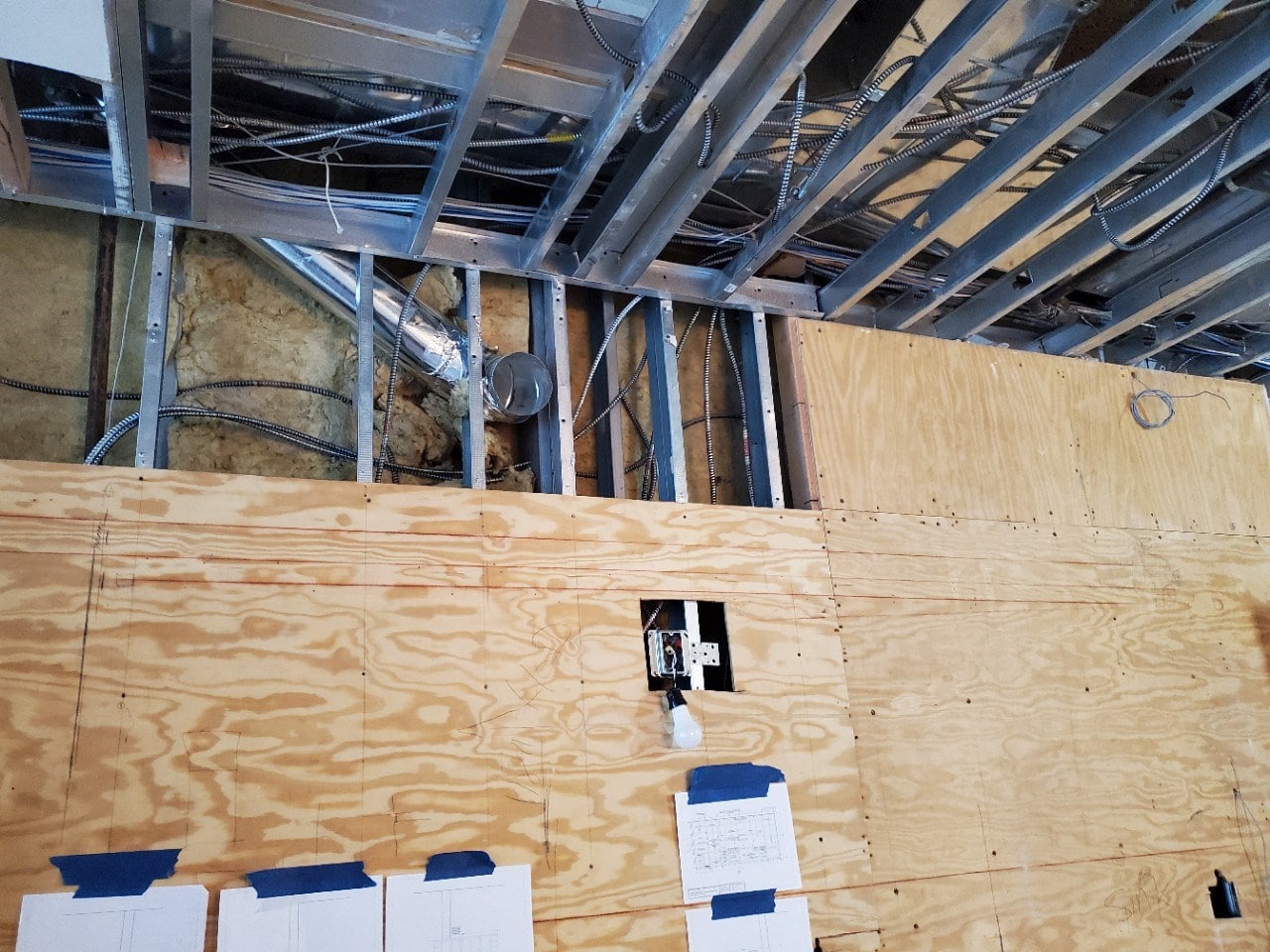NYC Alteration Agreements: Everything You Need To Know
Breaking down the key element that separates private home and apartment renovations in NYC - the alteration agreement.
April 20, 2022
|

NYC Alteration Agreements: Everything You Need To Know
Let's break down one of the trickiest parts of an NYC apartment renovation - the alteration agreement.
Table of contents
- What's Inside an Alteration Agreement?
- A Deeper Dive Into The Specs
- Navigating Alteration Agreements in NYC
If you’re planning a renovation in New York – and you live in an apartment building – you’ll be faced with one important factor private homes will never require: the alteration agreement.
In short, an alteration agreement provides rules and governs renovations in the building. It is set up by the board and management company to ensure that everything needed for the renovation is up to code, including insurance requirements. It’s also used to lay out technical elements, such as times of work, noise hours, and other specific requirements such as electrical, plumbing, and waterproofing work that the building imposes. This is in addition to the work you, as the owner of the unit, are looking to do.
[#Inside]What's Inside an Alteration Agreement?[#Inside]
Alteration agreements typically contain all of the following information:
- Times of work and noise hours
- Duration of a renovation (sometimes buildings only allow for 90 days or 120 days, after which a penalty is incurred)
- Requirements for plumbing and electrical work
- All insurance document requirements
- Specs of all plumbing and electrical fixtures to be used
- Requirements for asbestos and lead testing along with abatement requirements
- Description of factors that trigger architectural plans
Virtually every building in New York will require compliance with the alteration agreement prior to allowing your renovation project to commence. The process of satisfying the alteration agreement on larger projects such as complete apartment renovations, apartment combinations, or multi room remodels can be lengthy and time consuming, highlighting the importance of having an expert navigate the process.
Dedicating the time and effort to make sure everything in your alteration agreement is picture perfect prior to submission is essential to a seamless approval process. At Gallery, handling alteration agreement submissions is one of our specialties, which will ensure that your project approval process runs as smoothly as possible.

[#Deeper]A Deeper Dive Into The Specs[#Deeper]
Let’s dive in a little to what each element covers. You can also learn more about several of these factors in our blog about why NYC renovations are so complex.
Times of Work and Noise Hours
Every building will have their own working hours, commonly 9-4. But some buildings prohibit noisy work before noon. Certain portions of renovations are noise-producing by their nature, so losing over 30% of the working week to restrictions like this can add significant costs to a project.
Duration of a Renovation
Many buildings have strict allowances for the duration of a renovation, after which a daily or weekly penalty is assessed. Larger renovations in buildings that may have stricter timelines such as 90 or 120 days can be problematic since many larger scale apartment renovations are almost always impossible to complete in such timelines. In these types of instances the costs of the penalties should be considered and factored into the project budget up front.
Architectural Plans
These are not always necessary, but depending on the type of work being performed, some renovations will require architectural plans.
Requirements for Plumbing and Electrical, Including Specs for All Fixtures
Almost all NYC buildings require specified waterproofing in renovations of wet spaces such as bathrooms, kitchens, and laundry rooms. Buildings will also require detailed plumbing and electrical specs for all proposed plumbing and electrical fixtures. There are various reasons for this, ranging from electrical load compliance, compliance with water consumption rules, and general risk management.
Contractor’s Insurance Requirements
Without exception, all buildings have insurance requirements that are imposed on contractors performing renovations in a building. But all insurance requirements are now created equally.
Some buildings and management companies may require contractors to carry a baseline insurance such as a general liability policy of $1 million and the state-minimum statutory limit for workers’ compensation insurance.
It is important to note, however, that certain prestigious buildings (think addresses on Park Avenue or Central Park East/South/West) and many buildings managed by well-known institutionalized management companies (think Douglas Elliman, Halstead, Orsid, etc.) will not only have significantly higher insurance requirements but in many instances requirements for specialty insurance coverages such as labor law requirements, asbestos, lead, etc.
Electrical Requirements
Many buildings require a licensed electrician to submit an electrical load letter as part of the alteration agreement packet. This document stipulates what the electrical load of your apartment is and whether an upgrade may be required. This is especially relevant in older buildings or estate-conditioned apartments where outdated electrical systems cannot support modern day appliances.
Asbestos
Asbestos in home construction has largely ceased since the United States banned use in the 1970s, but it can still be found in older materials. As a result, asbestos tests are typically required as part of the submission of alteration agreements. If asbestos is detected in your unit and the proposed renovation will disturb the asbestos, an abatement will be necessary. In these instances a document called the ACP-5 will need to be filed as part of the approval process.
Common Restrictions
Alteration agreements will also spell out prohibitive construction methods and other general restrictions in the building that your contractor must abide by. One common example is restrictions on wet over dry spaces, with “wet” referring to rooms with plumbing like bathrooms, kitchens, and laundry rooms. Many buildings do not allow expansion or relocation of wet spaces over the dry spaces of the apartment below.
Another increasingly popular restriction, in large part due to many people now working from home, is the prohibition of certain power tools that cause noise and vibrations.

[#Navigating]Navigating Alteration Agreements in NYC[#Navigating]
This seems like a lot of work, and in many instances it is. It’s important for building management companies and boards to make sure that construction in just one unit will not affect the structure-wide services of everyone who lives in that apartment building, as well as protect the structure itself from potentially adverse changes. Especially for first-time buyers, the process can be daunting. That’s one major reason you might choose to work with a design-build firm that handles all this on behalf of the client – like Gallery.
To make the renovation process as seamless as possible, it’s vital to be vigilant with regards to every aspect of the alteration agreement. Gallery clients are assigned a dedicated team that stays with the project during its entire duration: a designer, project manager, and a project coordinator. From filing the necessary paperwork with the city to working with the building reviewing architect to approve your renovation, a design-build firm like Gallery is expressly focused on a streamlined, communicative process. Not only do we drill down into the details of your renovation, but our extensive experience in the heart of New York means that we’ve worked in many of the city’s apartment buildings, gaining firsthand experience of the rules, conditions, and structures themselves as well as meeting the board members and superintendents.
For an in-depth look at the apartment renovation process from start to finish, check out our Buyer’s Renovation Guide. If you’re ready for a consultation or want to know more about how Gallery can be there for you during your apartment renovation in NYC, contact us now.

.png)
.png)





.jpg)

%20(2).jpg)


.jpg)
%20Gallery%20KBNY.JPG)


